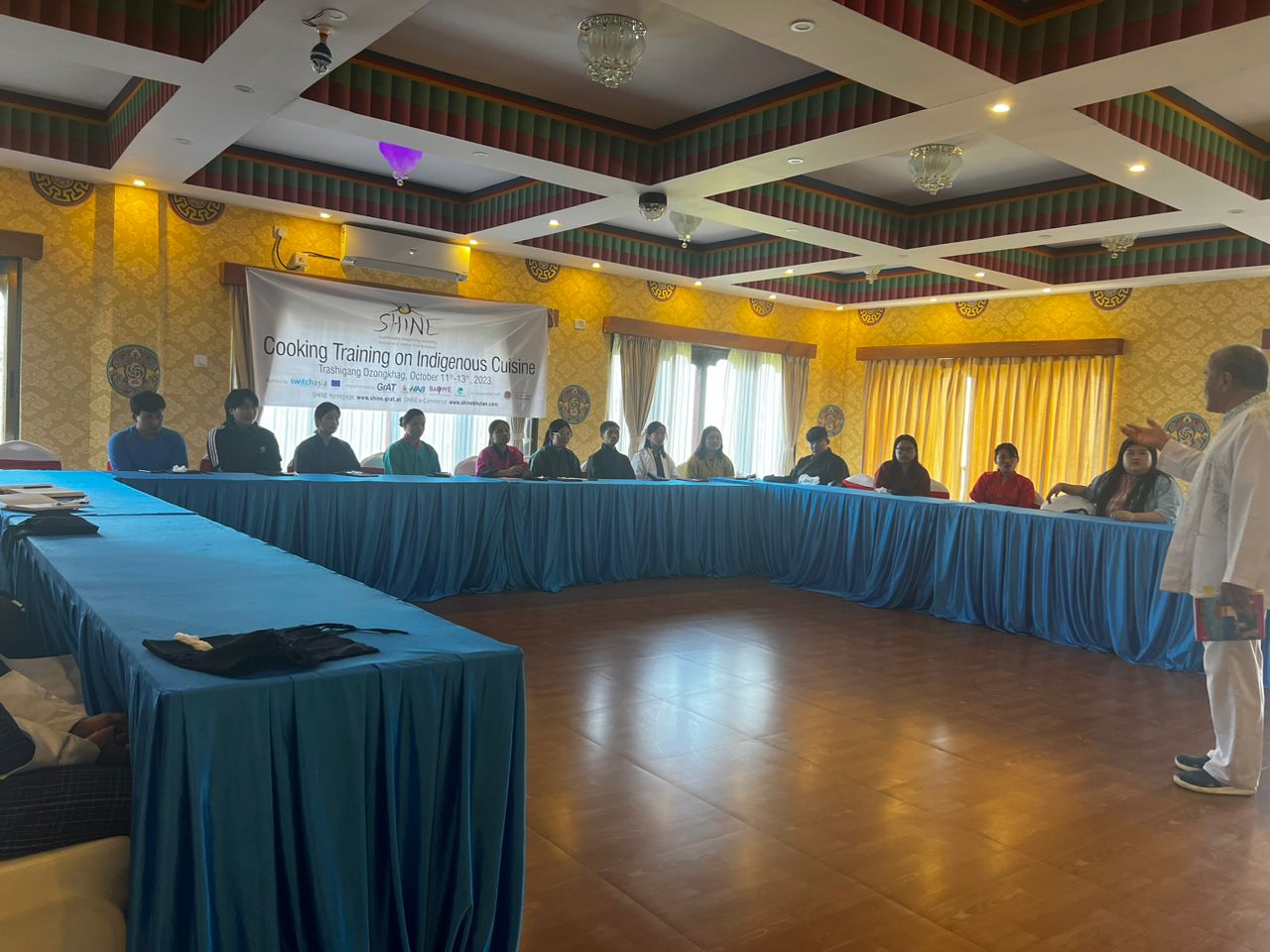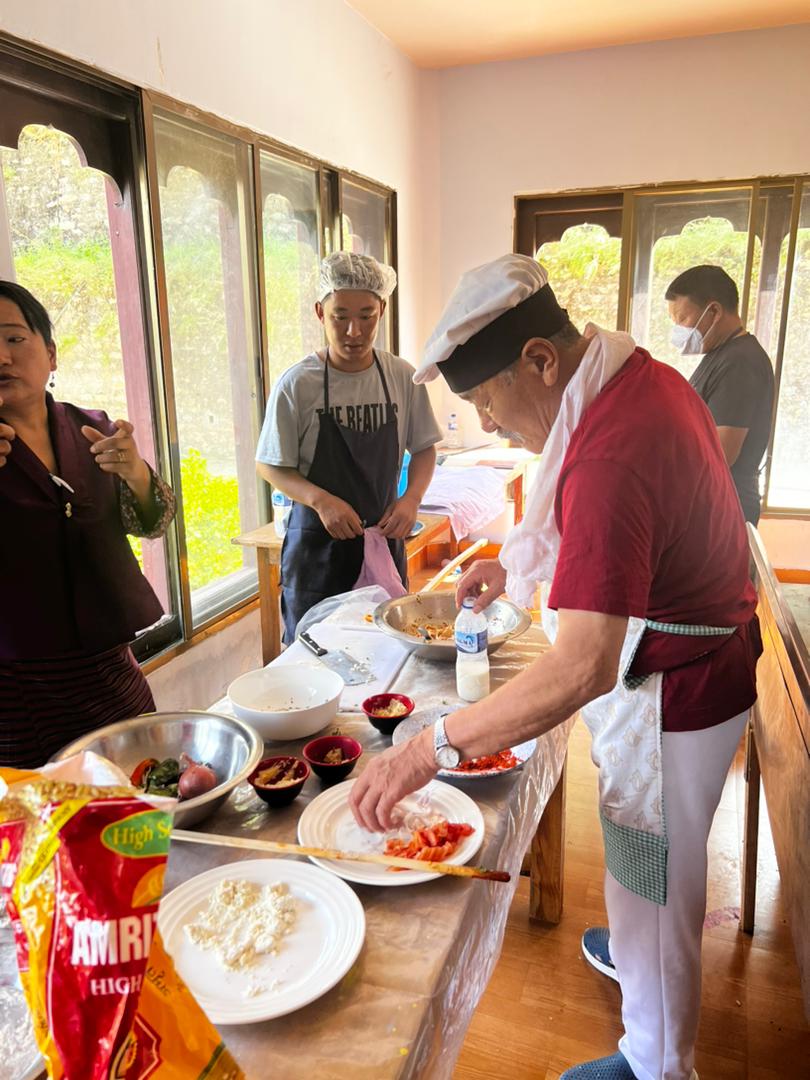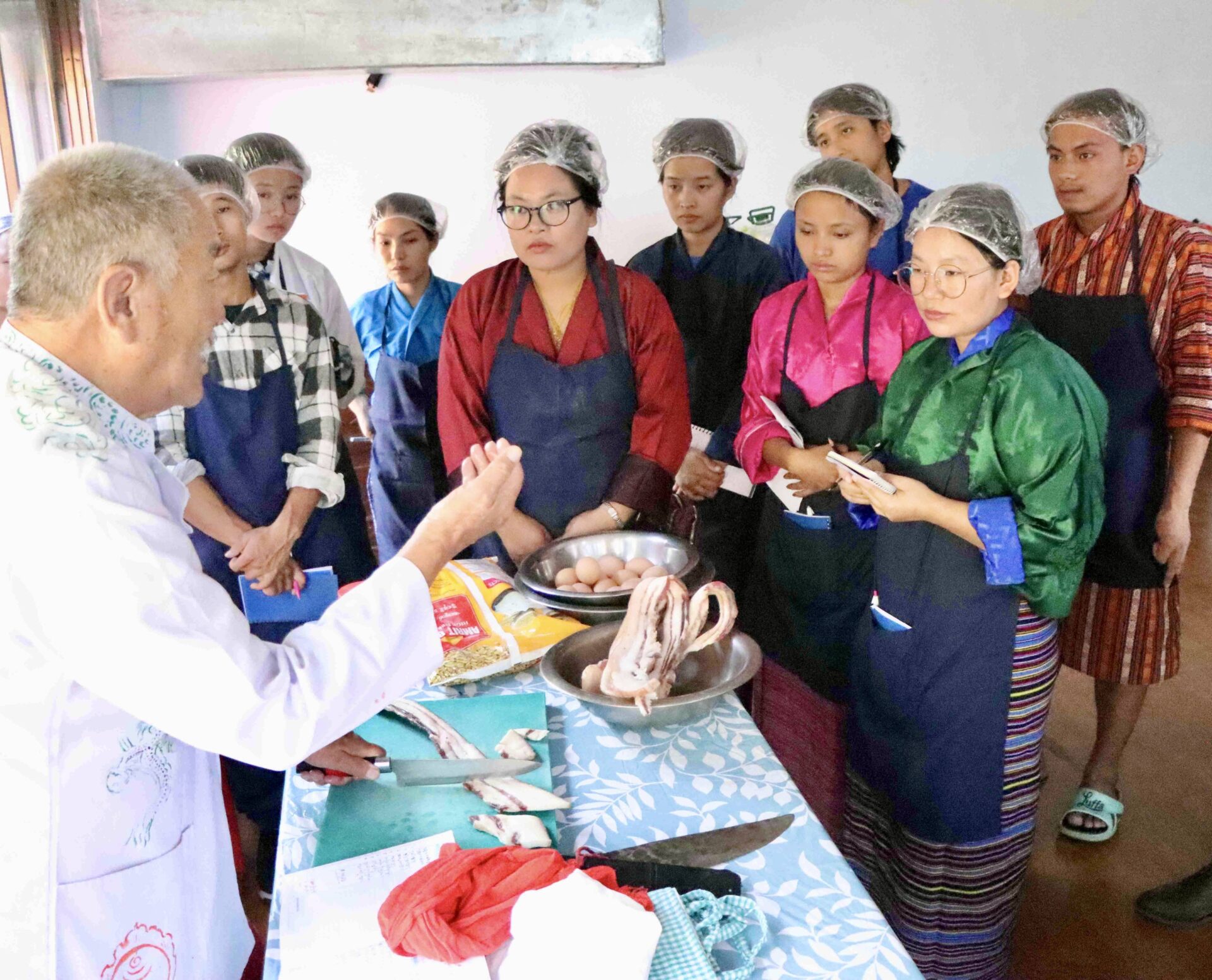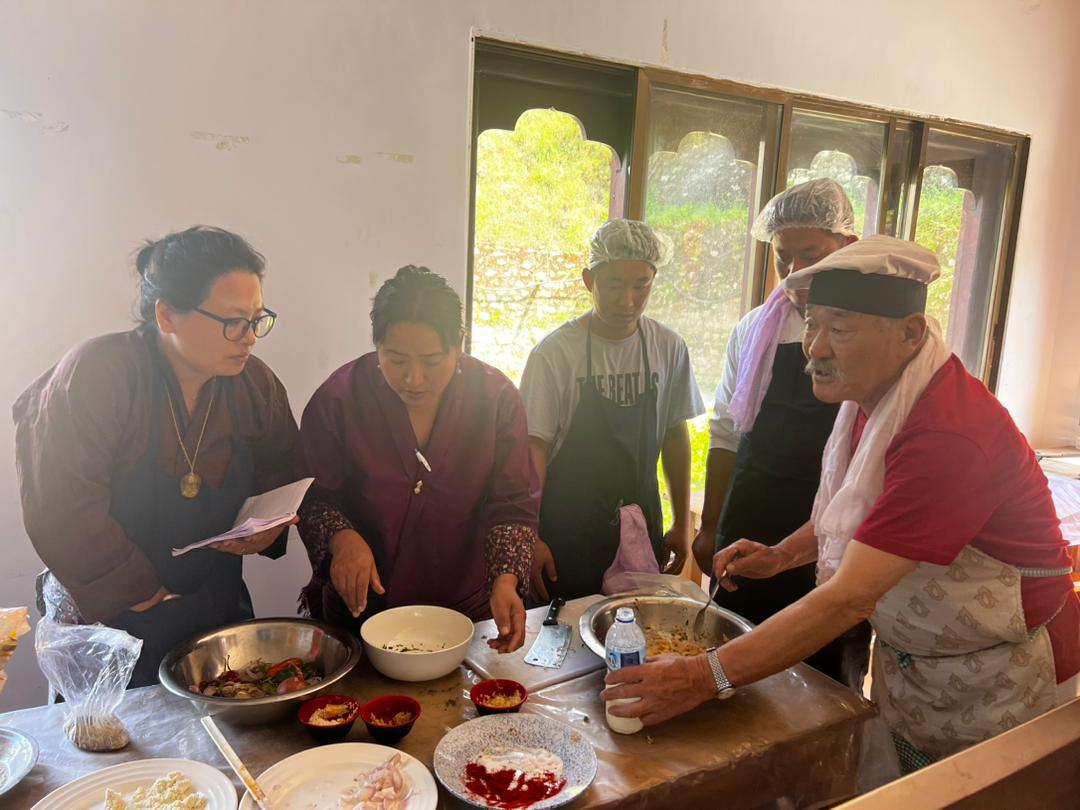SHINE project conducted the Cooking Training on Indigenous Food on 11th-13th October 2023 at Druk Deothjung Hotel in Trashigang, in collaboration with the Department of Tourism with the invitation and facilitation support from the district and local governments. 20 professional cooks
and chefs – 10 males and 10 females currently working in the tourism and hospitality sectors, such as resorts, hotels, restaurants, and village homestays, certified by the Department of Tourism (DoT) in the five eastern districts – Lhuentse, Mongar, Pemagatshel, Tarshigang and Trashi Yangtse, were invited to the training.
The training program was designed to empower the hospitality service providers with the knowledge and skills to offer more diversified and authentic Bhutanese cuisines made with indigenous ingredients, such as edible flowers, fresh or preserved vegetables, flour and meats. The SHINE project is funded by the EU SWITCH-Asia Programme.
During the three-day program the participants received extensive practical and theoretical education to prepare 30 different indigenous dishes using native ingredients. The theory classes were about Bhutanese culinary traditions, including their historical significance and cultural importance. Participants also explored and shared a number of traditional recipes handed down through generations in their region. They were also taught to practice and maintain the highest standards of food safety and hygiene in the kitchen.
Furthermore, they acquired the knowledge of traditional dining etiquette of ZaCha Drosum (referring to the manners of eating, chewing and walking) to properly demonstrate Bhutanese dining experiences towards tourists.

Cheten Tshering, homestay owner from Trashi Yangtse expressed, “previously I received cooking training on Indian and continental cuisines to become a professional cook, but I have often observed tourists who don’t really enjoy much of my replicate, which was no way near to its authenticity. Now with this training focused on Bhutanese food, which I am familiar and confident with, tourists will love to taste the authentic dishes. And I can diversify my dinning sets not only for tourists, but also for big gatherings of Bhutanese people in rituals and other formal events.”


The project team was thrilled and inspired by the overwhelming support shown by the local governments and district representatives, and the passion demonstrated by the participants throughout the training program. The joy of learning and re-discovering of the traditional cuisines was further recognized in the group of the e-commerce trainees, who took an opportunity in the late evening to observe the training program and mingle with the peers from the tourism sector. They shared their experiences on traditional recipes and the cultural significance at the grass-root level.
The success of the training program was acknowledged and appraised by Dasho Dzongdha (district
governor), district’s officials and monks, who also graced the certification awarding ceremony. The
certificates were co-signed by the Department of Tourism and the SHINE project leader. At the event 25 different cuisines prepared by the participants were presented and served.
Towards the end of the program, Deki Choden expressed her gratitude, “We are grateful for this cooking training program conducted by the EU SWITCH-Asia funded SHINE project. Over the three-day rigorous session, I got opportunity to learn how to prepare our indigenous cuisines which I had never heard and seen before. And now I find it utmost important to pass down our local recipes to our younger generations and children.”


